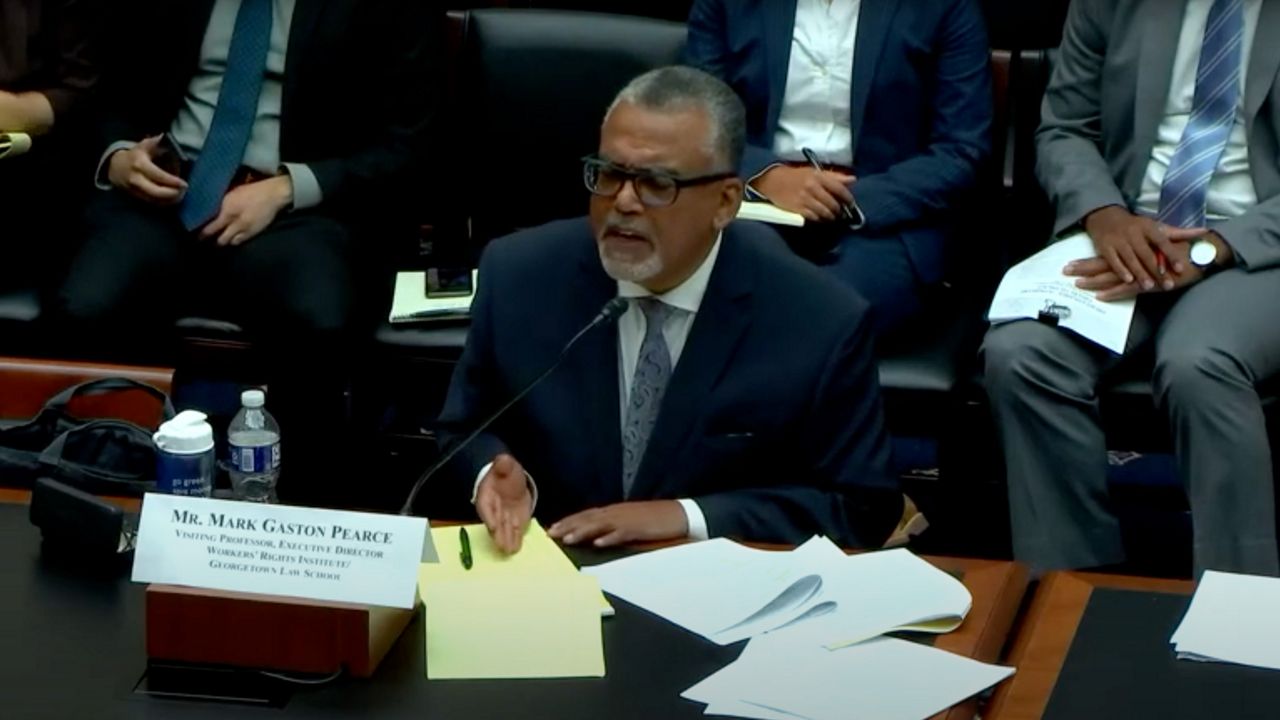Allegations of unfair labor practices and union-busting efforts against two national chains in Maine drew the attention of lawmakers in a congressional committee meeting in Washington this week, prompting one legal expert to describe one chain’s activities as “insidious” and “diabolical.”
The House Committee on Education and Labor held a meeting Wednesday where lawmakers discussed efforts on the part of national chains to interfere with or discourage unionizing.
The meeting included a brief discussion about activities from the Starbucks and Chipotle chains in Maine, which have led employees from both companies to file formal complaints with the National Labor Relations Board.
Mark Gaston Pearce is a visiting professor and executive director of the Workers’ Rights Institute at Georgetown Law School and former board member and chairperson of the National Labor Relations Board. Speaking to the committee Wednesday regarding Chipotle’s activities in Maine, Pearce said: “That kind of devastating, diabolical activity has to be looked at very carefully.”
Chipotle made headlines in June when it closed its location in Augusta shortly after employees there voted to unionize, and is accused of not letting the former Augusta employees apply for jobs at another store location less than an hour away.
Starbucks also drew fire in July after employees at the coffee chain’s Biddeford location became the first in the company’s national history to unionize. Union members have charged in complaints that the company cut back on the hours of employees who were behind the union organization.
Committee Member Rep. Joe Courtney (D-Conn.), cited texts in Wednesday’s meeting from Rep. Chellie Pingree (D-Maine), who is not a member, mentioning the situations with both chains in Maine. He asked Pearce about what he described as “these sorts of retaliatory measures, or certainly apparent retaliatory measures.”
Pearce was particularly critical of Chipotle.
“The insidious nature of the Maine situation is you have a place that gets closed as soon as a (unionizing) petition gets filed, after employees were being trained to expand operations at that facility, and then they offer up jobs to the public at a location 40 minutes away but block the emails of those employees that were working at the closed facility from applying,” Pearce said.
While businesses have some legal protection, Pearce added, the nature of Chipotle’s behavior strains the limits of those protections.
“An employer has a right to shutter its business to stop a union from coming in, but if you have a corporate employer that has a cluster of business and is essentially playing whack-a-mole to drive out the union, I think the law looks a little bit differently at those kinds of activities,” Pearce told the committee.



